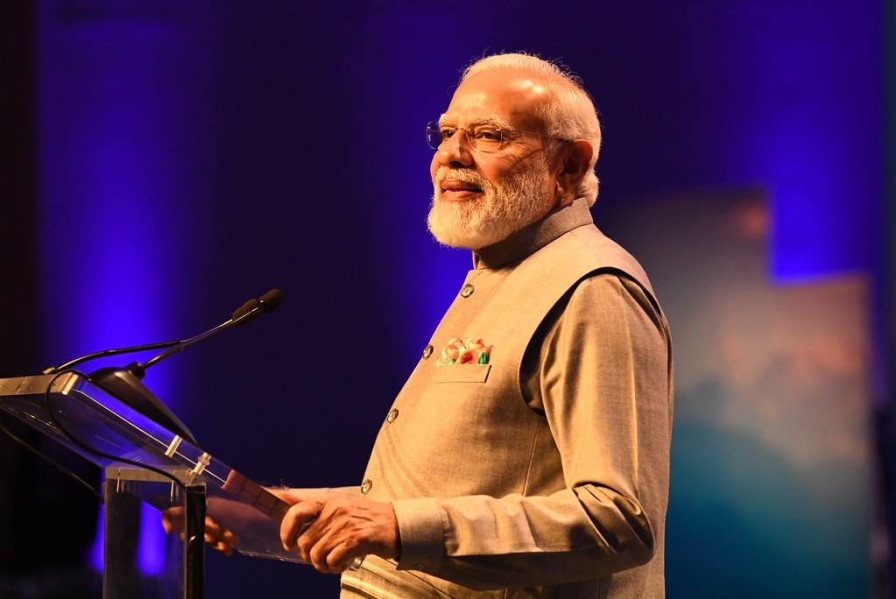Claims of Gaza ceasefire breaches; TSMC’s profit up 40%
And US 10-year Treasury yields have fallen to their lowest levels in months.
Gaza kids charity organiation distributes food.
And US 10-year Treasury yields have fallen to their lowest levels in months.
Gaza kids charity organiation distributes food.
Happy Friday and welcome to your morning wrap of the latest political and business headlines from around the world.
First up, Israel and Hamas have traded accusations of ceasefire violations in Gaza amid tensions over the flow of aid into the enclave, the return of deceased hostages, and new casualties from Israelis firing on Palestinians, The Guardian reports.
Regional diplomats and US officials have sought to minimise the accusations, emphasising that both parties are committed to the truce.
Only nine of the 28 deceased captives have been returned, with Hamas saying it would need specialist equipment to retrieve the rest from the ruins of Gaza. Israel has rejected the claim and accused the militant group of defying the ceasefire terms, though US advisers and the Red Cross have said the practical difficulties of recovering the remains were significant.
A senior Hamas official accused Israel of breaking the ceasefire by having killed at least 24 people in shootings since the ceasefire came into effect. The Israeli military did not immediately respond, but has said previously that some Palestinians have ignored warnings not to approach Israeli ceasefire positions and troops “opened fire to remove the threat”.
Israel also said the Rafah crossing from Gaza into Egypt, which is needed to bring aid into the territory, would not open tomorrow as planned.
To India, where the country’s Foreign Ministry has cast doubt on US President Donald Trump’s claim that Indian Prime Minister Narendra Modi has agreed to stop purchasing Russian oil, the BBC reported.
Trump said his Indian counterpart had “assured me today” that it would end Russian oil imports, which is seen as a way to increase economic pressure on the Kremlin to end the war in Ukraine.
An Indian government spokesperson, when asked about the call, said it was “not aware of any conversation between the two leaders”. The Indian government had earlier said discussions were still ongoing with the US.
The BBC also reported that India’s exports to the US dropped by 20% in September and nearly 40% in the last four months, since Trump’s steep tariffs came into effect.
September was the first full month of Washington’s 50% tariffs on Indian goods, which include a 25% penalty for Delhi’s refusal to stop purchasing Russian oil.

India’s Prime Minister, Narendra Modi.
In business news, Taiwan’s leading computer chip maker, TSMC, said its net profit surged nearly 40% in the past quarter on the back of a surge in artificial intelligence demand, Associated Press reported.
Taiwan Semiconductor Manufacturing Corp is the world’s largest semiconductor manufacturer and is a major supplier to companies such as Apple and Nvidia.
The company reported a US$15 billion net profit in the September quarter, higher than analysts’ forecasts.
“Recent developments in AI market continue to be very positive,” TSMC chief executive CC Wei said on an earnings call, CNBC reported. Wei added that increasing adoption of AI models by consumers has led to more demand. “Thus, our conviction in the AI megatrend is strengthening.”
Shares in the company are up 38% this year.
TSMC is the world’s largest semiconductor manufacturer.
In other market news, US Treasury yields briefly hit their lowest point in six months, CNBC reported.
The 10-year bond briefly hit 3.973% – its lowest level since April 7 – while the two-year bond touched its lowest level since 2022.
Bond yields have an inverse relationship with their price, meaning that as demand increases and the face value of a bond rises, the yield will fall.
The higher demand for Treasuries comes as stocks tumbled, led by declines in bank shares, as traders are concerned about bad loans. Two recent bankruptcies – car parts supplier First Brands and sub-prime lender and dealership Tricolour – suggest that lending standards may have relaxed too much. Trade tensions were also cited as a reason for why traders were flocking to safety.
Finally, food and beverage giant Nestlé will cut 16,000 jobs over the next two years, as its new chief executive pushes to focus on products with the highest returns, the BBC reported.
The job cuts were announced overnight as the Swiss company reported better sales figures in the first nine months of 2025, selling more products in major categories, including coffee and sweets.
It plans to axe 12,000 white-collar jobs on top of 4000 other roles across the business in the next two years. The lay-offs are expected to save the company US$1.12b.
The company’s share price gained 7.5% on the news.
Sign up to get the latest stories and insights delivered to your inbox – free, every day.